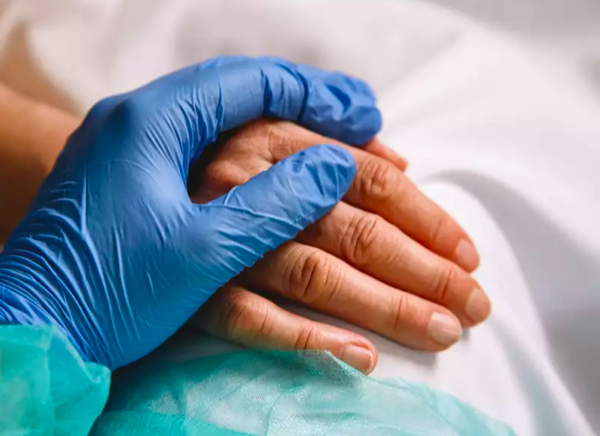
Treatment Period March 12th To March 21st
“Two common and one severe patients were significantly improved in 2 days after MSC transplantation. Among them, two common and one severe Patients recovered and were discharged 10 days after treatment. After treatment the peripheral lymphocytes were increased, the C-reactive protein decreased, and the overactivated cytokine-secreting immune cells CXCR3+CD11c+T cells, CXCR3+CD8+T cells, and CXCR3+NK cells disappeared in 3-6 days. In addition, the CD14+CD11c+CD11b mid-regulatory DC cell population dramatically increased. Meanwhile, the level of TNF-@ was significantly decreased, while IL-10 increased in the MSC treatment group compared to the placebo control group. Furthermore, the gene expression profile showed that MSCs were ACE2 and TMPRSS2, indicating that MSCs are free from COVID-19 infection. Thus, the intravenous transplantation of MSCs was safe and effective for treatment in patients with COVID-19 pneumonia, especially for Patients in critically severe conditions.”
Multiple myeloma is a cancer of plasma cells, a type of white blood cell in the bone marrow that produces antibodies. In this disease, plasma cells become abnormal, multiply uncontrollably, and crowd out healthy cells in the bone marrow. This can lead to bone damage, high calcium levels, and low red blood cell counts, causing fatigue and other symptoms. The abnormal plasma cells also produce M protein, which can thicken the blood and harm the kidneys. Newer treatments, like CAR T-cell therapy, have shown encouraging results, offering higher survival rates for patients with advanced multiple myeloma.
Acute Lymphocytic Leukemia (ALL) is a fast-growing cancer affecting blood and bone marrow, primarily targeting lymphocytes. While common in children with high cure rates, ALL in adults presents a lower chance of recovery.
The advent of CAR T-cell therapy has revolutionized treatment for relapsed or refractory ALL, significantly improving remission rates and survival outcomes. This section explores the nature of ALL and the transformative impact of CAR T-cell therapy.
Non-Hodgkin’s lymphoma (NHL), particularly aggressive subtypes like diffuse large B-cell lymphoma (DLBCL), poses significant treatment challenges. CAR T-cell therapy, an innovative immunotherapy, reprograms a patient’s T-cells to target and destroy cancer cells, offering new hope for those with relapsed or refractory disease. This therapy has shown promising results, with high response rates and potential for long-term remission, marking a major advancement in NHL treatment.